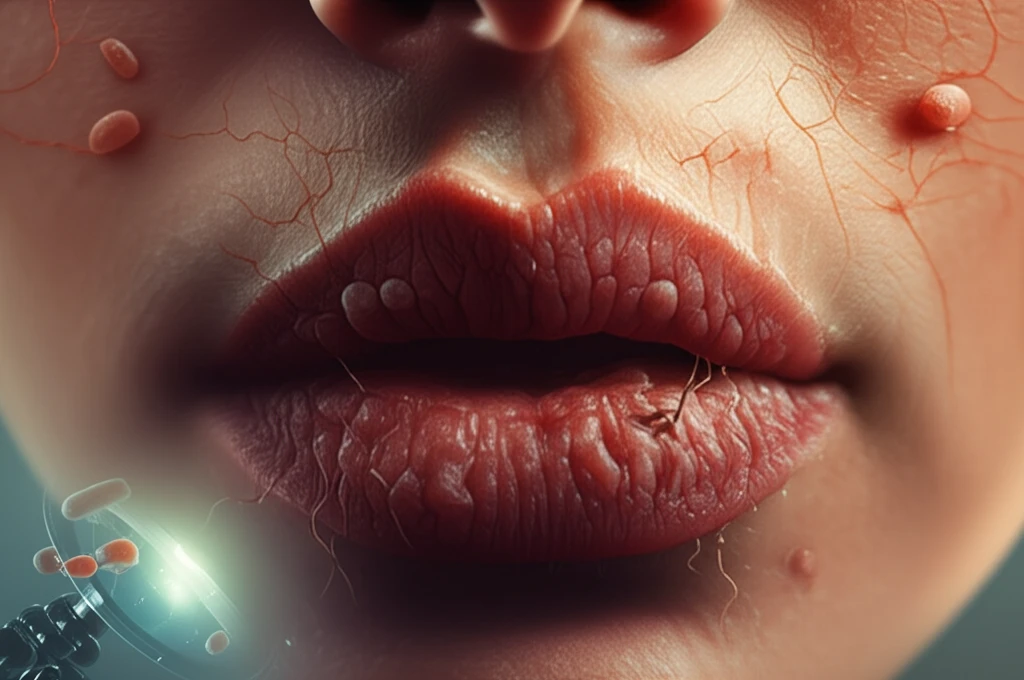
Is That Just Chapped Lips or Something More? A Guide to Candidal Cheilitis
"Uncover the causes, symptoms, and treatments for candidal cheilitis, a condition that goes beyond ordinary chapped lips. Learn when to seek professional help and how to keep your lips healthy."
We've all been there – dry, cracked lips that seem to resist every balm we throw at them. While we often dismiss it as simple chapping, sometimes, it's a sign of something more persistent: candidal cheilitis. This condition is a fungal infection that affects the lips and surrounding skin, often mistaken for common dryness.
Candidal cheilitis is caused by an overgrowth of Candida, a type of yeast that's naturally present in our bodies. Usually, our immune system and other microorganisms keep Candida in check. However, when this balance is disrupted, Candida can multiply and cause infection.
In a recent study highlighted in the Japanese Journal of Oral Medicine, researchers explored three cases of candidal cheilitis, shedding light on its diagnosis and treatment. Let's delve into what this condition entails, who's at risk, and how it can be effectively managed.
Candidal Cheilitis: More Than Just Dry Lips?

Candidal cheilitis is an opportunistic infection, meaning it takes hold when the body's defenses are weakened. Candida albicans is the most common culprit, thriving when the normal balance of microorganisms on the lips is disrupted. While it might start with symptoms similar to chapped lips, the infection persists and may worsen over time.
- Compromised Immunity: Conditions like HIV/AIDS, diabetes, or cancer can weaken the immune system, making it easier for Candida to overgrow.
- Medications: Steroids, antibiotics, and immunosuppressants can disrupt the natural balance of microorganisms, creating an environment conducive to Candida growth.
- Denture Use: Poorly fitting dentures or inadequate oral hygiene can trap moisture and create a breeding ground for Candida.
- Lip Licking: Chronic lip licking can create a moist environment that encourages fungal growth.
- Topical Steroid Use: Ironically, using steroid creams to treat lip inflammation can sometimes worsen the condition by suppressing the immune response.
When to See a Doctor
If you suspect you have candidal cheilitis, it's best to seek professional help. A doctor or dentist can accurately diagnose the condition through a physical exam or lab tests, such as a fungal culture or biopsy. They can then prescribe the appropriate antifungal medication to clear the infection. With proper treatment and preventative measures, you can restore your lips to their healthy, comfortable state.
